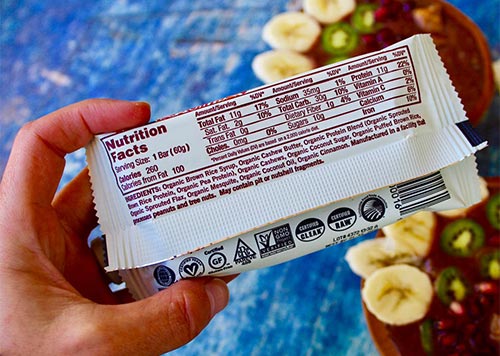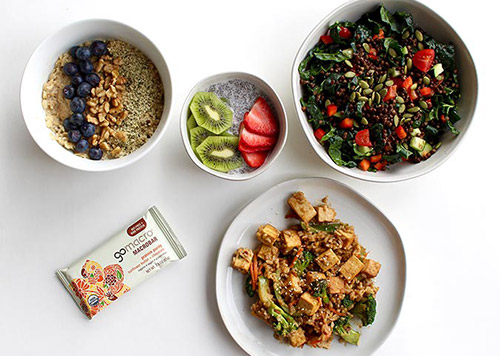What is Intuitive Eating?
Messages about diets, eating habits, and healthy food are so commonplace that it's hard to imagine a time when we didn't have to think about what we ate. But from birth, we all have a natural ability to eat intuitively. We cry when we're hungry, eat until we're full, and cry when we're ready to eat again. Without cognitively understanding it, we eat more some days and less other days depending on our developmental needs and energy use. We start life completely attuned to the signals our bodies send us.

As we grow older, however, we absorb many messages about food and eating from our families, friends, and the media. Many of these messages are subtle and well-meaning. Still, whether explicitly expressed or not, they begin to determine what, when, and how much we eat, often leading us to ignore our body's internal signals.
Intuitive eating is an evidence-based approach that seeks to help people tune-in to their body signals and improve their relationships with food. The term "intuitive eating" was first coined by Registered Dietitians, Evelyn Tribole and Elyse Resch, in 1995. Still, many of the underlying concepts are rooted in earlier ideas and have been the topic of hundreds of peer-reviewed studies since.
"As a non-diet approach, intuitive eating is simply not a diet," says Registered Dietitian Nutritionist and Certified Dietitian, Jaime Thorpe. "Intuitive eating puts trust back into your body's innate signals of hunger, fullness, and satisfaction to determine what, when, and how much to eat. There also is no 'pass or fail' to intuitive eating like there is with diets. Instead, there is grace and acceptance of the journey to trusting your body to send signals that help you meet your physiological and psychological needs."
The 10 Principles of Intuitive Eating
1. Reject A Diet-Centric Mentality
Strict dieting and the pursuit of weight loss can lead to low energy levels, more rules/rigidity, a slowed metabolism, nutritional deficiencies, and more. It is not a lack of willpower that causes most people to fail at dieting, but instead dieting that has failed you and the nutritional needs of your body.
2. Honor Your Hunger
We don’t ignore body sensations such as needing to use the bathroom or sleepiness, so why is it that we’re quick to dismiss our physiological sense of hunger? Honoring your hunger is listening to a body cue and providing your body with nourishment to build a trusting relationship.
3. Make Peace with Food
The first step to making peace with food is to allow yourself unconditional permission to eat most foods (allergies and diagnosed sensitivities excluded). This means getting rid of the good/bad food labels. When something is “off limits,” it can trigger intense feelings of deprivation, which can often lead to overindulging at a later time. Give yourself grace and allow yourself to enjoy a balanced well-rounded diet.
“When we give ourselves permission to eat something indulgent, like cakes and brownies, we're less likely to feel guilty, but instead, truly enjoy them mindfully,” says Koellner.
4. Challenge the Food Police
Learn to interrupt the voices in your head telling you which foods are “good,” “bad,” or “off-limits.” Often, unreasonable food rules are a culmination of diet culture or external messages we hear. Chasing this food police away is a critical step to start eating intuitively.
5. Respect Your Fullness
Just as intuitive eating teaches you to honor your hunger, feeling your fullness is key to redeveloping a healthy mind-body connection. Once eating, check in with your fullness level and observe what it means to feel full. Check-in throughout the meal, too. How does the food taste, is it satisfying, am I still hungry?
6. Discover the Satisfaction Factor
We often overlook the simple pleasure and joy that food can provide. When we allow ourselves to eat food we truly enjoy in a comfortable and inviting environment, we can better tune into the satisfaction factor of the food that keeps us content. By providing this experience for yourself, you may find that it takes less food to decide you have had “enough.”
7. Cope with Emotions Without Using Food
Eating to handle stress, anger, or sadness, though typical, can often lead to feelings of guilt, shame, and discomfort. When we eat emotionally, the comfort is usually short-lived. Finding other ways to cope can help diminish the drive to overeat and instead offer sustainable solutions that are better for long-term emotional health. Practicing meditation is a great way to center yourself in times of discomfort or stress.
8. Respect Your Body
At some point, most of us are critical of our bodies. Learning to respect our body for how it is, is essential to reaching a point of intuitive eating.
9. Exercise - Feel the Difference
Activity should come from a place of joy and gratitude for our body rather than a place of punishment. Exercising with the intention to burn calories or lose weight often backfires and takes the innate joy out of moving. We know activity is beneficial, but choose a method of movement that you can look forward to instead of feeling guilty when it’s not completed.
10. Honor Your Health with Gentle Nutrition
Perfection is not the goal when it comes to intuitive eating. Gentle nutrition means making food choices that make you feel good, are healthy, and delicious. It's all about the big picture, and ultimately your relationship with food, that is most important.
Benefits of Intuitive Eating
Intuitive eating is a great way to become more aligned with your body’s natural signals while developing a healthier food mindset. In over 200 clinical studies, it’s been found that implementation of intuitive eating is associated with improved psychological health, lowered stress, better body image, improved blood pressure, improved dietary intake, and a healthy Body Mass Index score (BMI). Many experts note that one of the potential benefits of intuitive eating is finding “food freedom” so that you can enjoy the taste and nourishment of food without constant preoccupation and stress.
If you’re interested in learning more about intuitive eating and specific techniques for eating intuitively, reach out to a Registered Dietitian who specializes in intuitive eating, or check out the book Intuitive Eating.









